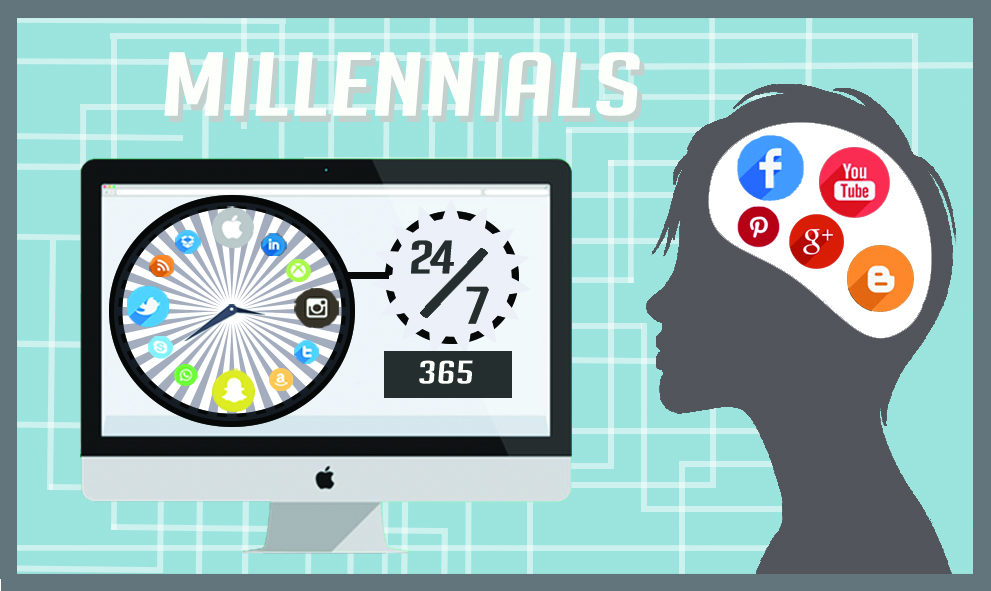BU millennials define their generation
Remember when Miley Cyrus licked a wrecking ball? Remember when “High School Musical” was the biggest love story of your childhood? Remember when the dance the “Cupid Shuffle” became a thing, even though we all hated it? These iconic memories help define the millennial generation.
“Our generation is polarized in just about everything,” freshman Garrett Howland said.
The millennial generation consists of Americans born between the early 1980s and the early 2000s and their social media profiles. We are bold and radical, like Miley Cyrus, and have an opinion on almost everything.
Most Baker students define the millennial generation as dynamic, changing, driven, young-at-heart, empathetic and introverted. Howland added the description “hashtagyouonlyliveonce.”
Many people believe that technology defines the millennial generation.
“Reliance on technology and lack of fascination with nature is the plague of the millennial generation,” junior Andrew Emanuels said.
Millennials are tied to technology, as we have our phones glued to our hands and can’t go 20 minutes without them. We are constantly wanting to know what the person across the room posted on his or her Snap story from last night, or whether or not Kylie Jenner changed her hair color again.
“Social media is the worst aspect about our generation because we are dependent on it and don’t know how to function without it,” Howland said.
However, technological advances in education and medicine have helped millennials.
“With major advancements in the technology industry in the last 25 years, millennials know how to use technology and are raised knowing nothing else,” Emanuels said.
According to the Pew Research Center, millennials are headed toward being the most educated generation in history. We are pushed toward furthering our education by going to college and pursuing careers that otherwise wouldn’t be possible.
“I would say that most of us students attend school for the reason that the work force today most often requires a college education from you,” Howland said.
However, even with all of those academic degrees, approximately 40 percent of unemployed workers are millennials, causing some critics to rename millennials as “Generation Jobless.”
Despite the lack of jobs, there are many positive attributes for members of the millennial generation.
“The best part of our generation is that we are not afraid to think outside of the box and to solve problems that have gone unanswered for many decades,” junior Ashley Kroeker said.
One trait millennials believe they have is the power of change. Also, they frequently attach themselves to trends, whether it is bringing back fashion such as Converse and Birkenstocks or boy bands like One Direction. Millennials always change to something new and adapt to what’s popping in society.
“This generation is always changing,” sophomore Carly Triggs said. “I think that scares older generations because of how fast our generation is able to move on to the next best thing.”
However, millennials live in a world where people say you can never be too careful, you should be cautious about your surroundings, and you should not trust people.
“Society tells us we can’t walk alone in a parking lot because we might get taken advantage of or we shouldn’t show off our body because it might entice someone to think we are consenting without actually saying the words,” Triggs said.
Millennials also constantly worry about thigh gaps, drawn-on eyebrows, the swimsuit body and contouring. Many of us work hard to conform to a certain look, but we also fight for the justice of accepting others who do not conform. In addition, we have become more accepting of race and sexual orientation.
“Equality movements have shaped millennials to care about others without distinction of sexual identification, gender, race, or religion,” Emanuels said.
Ultimately, most of us in the millennial generation want to be recognized for having the potential to change the world.







